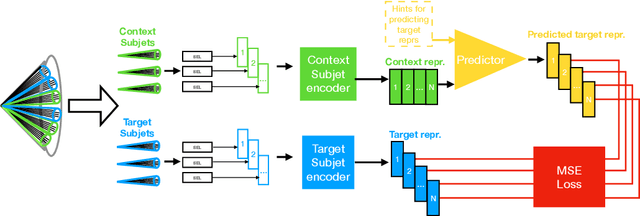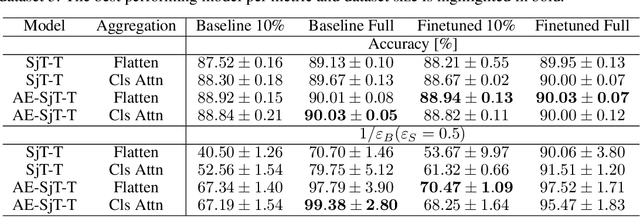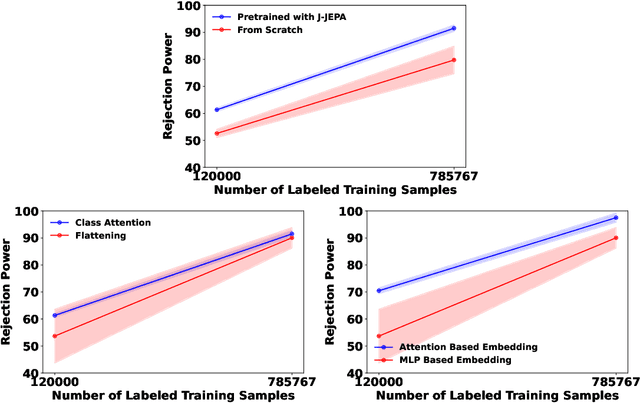Subash Katel
Learning Symmetry-Independent Jet Representations via Jet-Based Joint Embedding Predictive Architecture
Dec 05, 2024


Abstract:In high energy physics, self-supervised learning (SSL) methods have the potential to aid in the creation of machine learning models without the need for labeled datasets for a variety of tasks, including those related to jets -- narrow sprays of particles produced by quarks and gluons in high energy particle collisions. This study introduces an approach to learning jet representations without hand-crafted augmentations using a jet-based joint embedding predictive architecture (J-JEPA), which aims to predict various physical targets from an informative context. As our method does not require hand-crafted augmentation like other common SSL techniques, J-JEPA avoids introducing biases that could harm downstream tasks. Since different tasks generally require invariance under different augmentations, this training without hand-crafted augmentation enables versatile applications, offering a pathway toward a cross-task foundation model. We finetune the representations learned by J-JEPA for jet tagging and benchmark them against task-specific representations.
 Add to Chrome
Add to Chrome Add to Firefox
Add to Firefox Add to Edge
Add to Edge